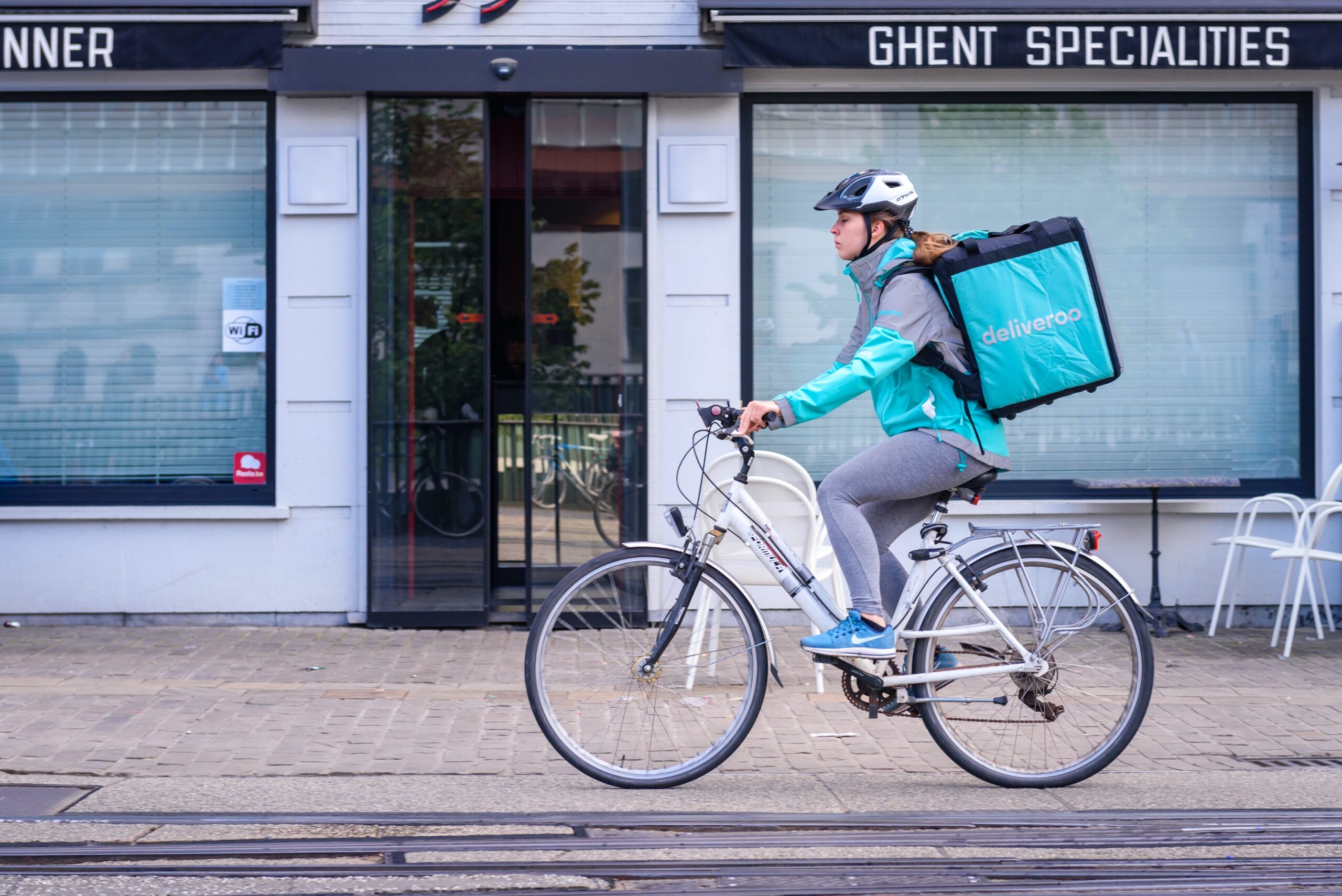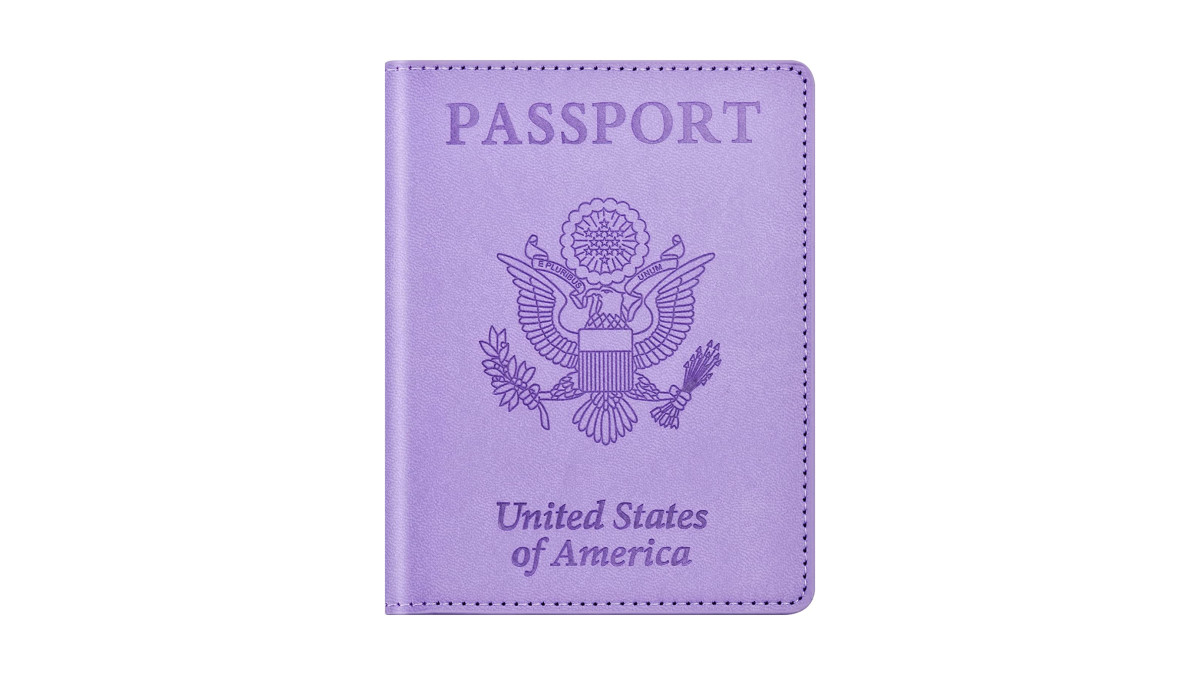Rapid delivery grocery apps have flourished during the pandemic – but will they permanently change how we shop?
Is there a place for speedy grocery delivery startups in a post-COVID world? That depends on consumer habit.

Billions of dollars are flowing to support companies you may never have heard of – startups with memorable names like Zapp, Deliveroo, Getir and Gorillas. These speedy delivery companies have become the go-to for many grocery shoppers trying to avoid busy supermarkets during the pandemic, and have caught the eyes of venture capitalists.
Investors have closed over US$7 billion (£4.9 billion) in deals backing these companies in the first quarter of 2021, nearly four times the value in the previous quarter.
These new players promise an enticing service: apps that let consumers order groceries with delivery times of a mere ten minutes for a small markup, currently around 10%.
But is there still a place for these rapid delivery services in a post-COVID world? Much of that depends on whether shoppers can – or want to – change their delivery habits.
Changing consumer habits
As the pandemic hit in early 2020, consumers quickly shifted their grocery shopping habits. Instead of risking disease exposure and waiting in long queues, consumers started to rely on delivery services, and for many, it became a habit.
These services’ relatively small markup for groceries, given the convenience of the almost immediate delivery, is exactly what these companies need to achieve their goal of changing consumer habits. In contrast, the more traditional delivery services of large supermarket chains typically deliver groceries without a markup, as long as the minimum spend is met.
Research has shown that many consumer decisions, such as which coffee to buy, are habit-driven. After all, consumers would take hours in the supermarket if they had to ponder anew each product choice. Instead, they typically buy the same pasta they bought last time without much thought.
Like these choices, ordering groceries via app has become a habit for many people that doesn’t require much deliberation. Rather than planning meals for the next few days, consumers might factor in the option to rapidly order anything they need. This might create a habit of following every whim or satisfying every ice-cream craving.
Habits are difficult to break, especially when the habitual behaviour seems to carry little cost. Every smoker knows this logic: a single cigarette has virtually no harmful impact on a smoker’s health, so it seems not worth the effort to resist temptation. However, the costs of having multiple cigarettes add up, ultimately endangering the smoker’s health.
For rapid food delivery, the costs to the consumer are also relatively small – at first. Prices might be a bit higher, but the convenience seems worth it. Ordering easily via app becomes tempting, and there are no obviously compelling reasons to resist. Many companies will also throw in initial discounts for first-time customers.
Once a consumer has ordered rapid delivery a few times, the service is likely to replace past behaviour, like a quick trip to the corner shop. If the consumer then continues ordering rapid delivery, a habit is formed. In fact, research shows that consumers who perform a behaviour regularly for about six weeks have created a habit.
Currently, rapid grocery delivery is only available to consumers in large cities. Despite the stereotype that such services would mostly be used by tech-savvy younger consumers who are experienced with app-based services, many older consumers also value rapid delivery.

The long-term costs
At the moment, the future costs of a rapid delivery habit are relatively invisible, but after the pandemic, you can expect to see costs – financial and social – materialise.
As delivery companies gain market share, they might hike prices up slowly. So far, rapid delivery companies have been backed by venture capital to finance their costs, but they will need to be profitable in the long run to survive. So some price increases in the future seem inevitable, as has been the case with other venture capital-backed consumer apps.
Also invisible are the social costs. Smaller grocery stores and restaurants that are often family-owned may be pushed out of the market. Although rapid delivery creates jobs as well, delivery drivers face tight deadlines and receive low wages with little job security.
Forming new habits
Once a habit is formed, it’s difficult to break. But transitional phases, such as returning to the office after a long time working from home, can nudge people to rethink unwanted habits. As life slowly returns to pre-pandemic normality, consumers have an opportunity to reevaluate which business models they want to support.
Consumers wanting to reevaluate their habits should do the following:
Compare your bank statements before and during the pandemic to identify what has changed.
Reflect on these changes: what changed for the better, what for the worse?
Ask yourself which business you would be truly sad to see close. Try to frequent these more often.
Think about whether you are losing anything when you shop online. Maybe you miss meeting people serendipitously in person, or checking out new products in the supermarket aisles.
COVID-19 changed consumer lives dramatically and rapidly, with little time for reflection on these changes. Now, the reopening is slower, and consumers have the opportunity to anticipate and actively plan for the coming changes. This opportunity should not be wasted, but should be used to change consumer shopping for the better.
Janina Steinmetz does not work for, consult, own shares in or receive funding from any company or organisation that would benefit from this article, and has disclosed no relevant affiliations beyond their academic appointment.
reopening pandemic covid-19Government
Moderna turns the spotlight on long Covid with new initiatives
Moderna’s latest Covid effort addresses the often-overlooked chronic condition of long Covid — and encourages vaccination to reduce risks. A digital…

Moderna’s latest Covid effort addresses the often-overlooked chronic condition of long Covid — and encourages vaccination to reduce risks. A digital campaign debuted Friday along with a co-sponsored event in Detroit offering free CT scans, which will also be used in ongoing long Covid research.
In a new video, a young woman describes her three-year battle with long Covid, which includes losing her job, coping with multiple debilitating symptoms and dealing with the negative effects on her family. She ends by saying, “The only way to prevent long Covid is to not get Covid” along with an on-screen message about where to find Covid-19 vaccines through the vaccines.gov website.
“Last season we saw people would get a flu shot, but they didn’t always get a Covid shot,” said Moderna’s Chief Brand Officer Kate Cronin. “People should get their flu shot, but they should also get their Covid shot. There’s no risk of long flu, but there is the risk of long-term effects of Covid.”
It’s Moderna’s “first effort to really sound the alarm,” she said, and the debut coincides with the second annual Long Covid Awareness Day.
An estimated 17.6 million Americans are living with long Covid, according to the latest CDC data. About four million of them are out of work because of the condition, resulting in an estimated $170 billion in lost wages.
While HHS anted up $45 million in grants last year to expand long Covid support initiatives along with public health campaigns, the condition is still often ignored and underfunded.
“It’s not just about the initial infection of Covid, but also if you get it multiple times, your risks goes up significantly,” Cronin said. “It’s important that people understand that.”
grants covid-19 cdc hhsGovernment
Consequences Minus Truth
Consequences Minus Truth
Authored by James Howard Kunstler via Kunstler.com,
“People crave trust in others, because God is found there.”
-…

Authored by James Howard Kunstler via Kunstler.com,
“People crave trust in others, because God is found there.”
- Dom de Bailleul
The rewards of civilization have come to seem rather trashy in these bleak days of late empire; so, why even bother pretending to be civilized? This appears to be the ethos driving our politics and culture now. But driving us where? Why, to a spectacular sort of crack-up, and at warp speed, compared to the more leisurely breakdown of past societies that arrived at a similar inflection point where Murphy’s Law replaced the rule of law.
The US Military Academy at West point decided to “upgrade” its mission statement this week by deleting the phrase Duty, Honor, Country that summarized its essential moral orientation. They replaced it with an oblique reference to “Army Values,” without spelling out what these values are, exactly, which could range from “embrace the suck” to “charlie foxtrot” to “FUBAR” — all neatly applicable to our country’s current state of perplexity and dread.
Are you feeling more confident that the US military can competently defend our country? Probably more like the opposite, because the manipulation of language is being used deliberately to turn our country inside-out and upside-down. At this point we probably could not successfully pacify a Caribbean island if we had to, and you’ve got to wonder what might happen if we have to contend with countless hostile subversive cadres who have slipped across the border with the estimated nine-million others ushered in by the government’s welcome wagon.
Momentous events await. This Monday, the Supreme Court will entertain oral arguments on the case Missouri, et al. v. Joseph R. Biden, Jr., et al. The integrity of the First Amendment hinges on the decision. Do we have freedom of speech as set forth in the Constitution? Or is it conditional on how government officials feel about some set of circumstances? At issue specifically is the government’s conduct in coercing social media companies to censor opinion in order to suppress so-called “vaccine hesitancy” and to manipulate public debate in the 2020 election. Government lawyers have argued that they were merely “communicating” with Twitter, Facebook, Google, and others about “public health disinformation and election conspiracies.”
You can reasonably suppose that this was our government’s effort to disable the truth, especially as it conflicted with its own policy and activities — from supporting BLM riots to enabling election fraud to mandating dubious vaccines. Former employees of the FBI and the CIA were directly implanted in social media companies to oversee the carrying-out of censorship orders from their old headquarters. The former general counsel (top lawyer) for the FBI, James Baker, slid unnoticed into the general counsel seat at Twitter until Elon Musk bought the company late in 2022 and flushed him out. The so-called Twitter Files uncovered by indy reporters Matt Taibbi, Michael Shellenberger, and others, produced reams of emails from FBI officials nagging Twitter execs to de-platform people and bury their dissent. You can be sure these were threats, not mere suggestions.
One of the plaintiffs joined to Missouri v. Biden is Dr. Martin Kulldorff, a biostatistician and professor at the Harvard Medical School, who opposed Covid-19 lockdowns and vaccine mandates. He was one of the authors of the open letter called The Great Barrington Declaration (October, 2020) that articulated informed medical dissent for a bamboozled public. He was fired from his job at Harvard just this past week for continuing his refusal to take the vaccine. Harvard remains among a handful of institutions that still require it, despite massive evidence that it is ineffective and hazardous. Like West Point, maybe Harvard should ditch its motto, Veritas, Latin for “truth.”
A society hostile to truth can’t possibly remain civilized, because it will also be hostile to reality. That appears to be the disposition of the people running things in the USA these days. The problem, of course, is that this is not a reality-optional world, despite the wishes of many Americans (and other peoples of Western Civ) who wish it would be.
Next up for us will be “Joe Biden’s” attempt to complete the bankruptcy of our country with $7.3-trillion proposed budget, 20 percent over the previous years spending, based on a $5-billion tax increase. Good luck making that work. New York City alone is faced with paying $387 a day for food and shelter for each of an estimated 64,800 illegal immigrants, which amounts to $9.15-billion a year. The money doesn’t exist, of course. New York can thank “Joe Biden’s” executive agencies for sticking them with this unbearable burden. It will be the end of New York City. There will be no money left for public services or cultural institutions. That’s the reality and that’s the truth.
A financial crack-up is probably the only thing short of all-out war that will get the public’s attention at this point. I wouldn’t be at all surprised if it happened next week. Historians of the future, stir-frying crickets and fiddleheads over their campfires will marvel at America’s terminal act of gluttony: managing to eat itself alive.
* * *
Support his blog by visiting Jim’s Patreon Page or Substack
Uncategorized
One city held a mass passport-getting event
A New Orleans congressman organized a way for people to apply for their passports en masse.

While the number of Americans who do not have a passport has dropped steadily from more than 80% in 1990 to just over 50% now, a lack of knowledge around passport requirements still keeps a significant portion of the population away from international travel.
Over the four years that passed since the start of covid-19, passport offices have also been dealing with significant backlog due to the high numbers of people who were looking to get a passport post-pandemic.
Related: Here is why it is (still) taking forever to get a passport
To deal with these concurrent issues, the U.S. State Department recently held a mass passport-getting event in the city of New Orleans. Called the "Passport Acceptance Event," the gathering was held at a local auditorium and invited residents of Louisiana’s 2nd Congressional District to complete a passport application on-site with the help of staff and government workers.
'Come apply for your passport, no appointment is required'
"Hey #LA02," Rep. Troy A. Carter Sr. (D-LA), whose office co-hosted the event alongside the city of New Orleans, wrote to his followers on Instagram (META) . "My office is providing passport services at our #PassportAcceptance event. Come apply for your passport, no appointment is required."
More Travel:
- A new travel term is taking over the internet (and reaching airlines and hotels)
- The 10 best airline stocks to buy now
- Airlines see a new kind of traveler at the front of the plane
The event was held on March 14 from 10 a.m. to 1 p.m. While it was designed for those who are already eligible for U.S. citizenship rather than as a way to help non-citizens with immigration questions, it helped those completing the application for the first time fill out forms and make sure they have the photographs and identity documents they need. The passport offices in New Orleans where one would normally have to bring already-completed forms have also been dealing with lines and would require one to book spots weeks in advance.
These are the countries with the highest-ranking passports in 2024
According to Carter Sr.'s communications team, those who submitted their passport application at the event also received expedited processing of two to three weeks (according to the State Department's website, times for regular processing are currently six to eight weeks).
While Carter Sr.'s office has not released the numbers of people who applied for a passport on March 14, photos from the event show that many took advantage of the opportunity to apply for a passport in a group setting and get expedited processing.
Every couple of months, a new ranking agency puts together a list of the most and least powerful passports in the world based on factors such as visa-free travel and opportunities for cross-border business.
In January, global citizenship and financial advisory firm Arton Capital identified United Arab Emirates as having the most powerful passport in 2024. While the United States topped the list of one such ranking in 2014, worsening relations with a number of countries as well as stricter immigration rules even as other countries have taken strides to create opportunities for investors and digital nomads caused the American passport to slip in recent years.
A UAE passport grants holders visa-free or visa-on-arrival access to 180 of the world’s 198 countries (this calculation includes disputed territories such as Kosovo and Western Sahara) while Americans currently have the same access to 151 countries.
stocks pandemic covid-19 grants-

 Uncategorized3 weeks ago
Uncategorized3 weeks agoAll Of The Elements Are In Place For An Economic Crisis Of Staggering Proportions
-

 International1 week ago
International1 week agoEyePoint poaches medical chief from Apellis; Sandoz CFO, longtime BioNTech exec to retire
-

 Uncategorized4 weeks ago
Uncategorized4 weeks agoCalifornia Counties Could Be Forced To Pay $300 Million To Cover COVID-Era Program
-

 Uncategorized3 weeks ago
Uncategorized3 weeks agoApparel Retailer Express Moving Toward Bankruptcy
-

 Uncategorized4 weeks ago
Uncategorized4 weeks agoIndustrial Production Decreased 0.1% in January
-

 International1 week ago
International1 week agoWalmart launches clever answer to Target’s new membership program
-

 Spread & Containment2 days ago
Spread & Containment2 days agoIFM’s Hat Trick and Reflections On Option-To-Buy M&A
-

 Uncategorized4 weeks ago
Uncategorized4 weeks agoRFK Jr: The Wuhan Cover-Up & The Rise Of The Biowarfare-Industrial Complex





















